Making a Simple Hydroponic Installation and The Positive Impact of Growing Vegetables at Home for the Environment
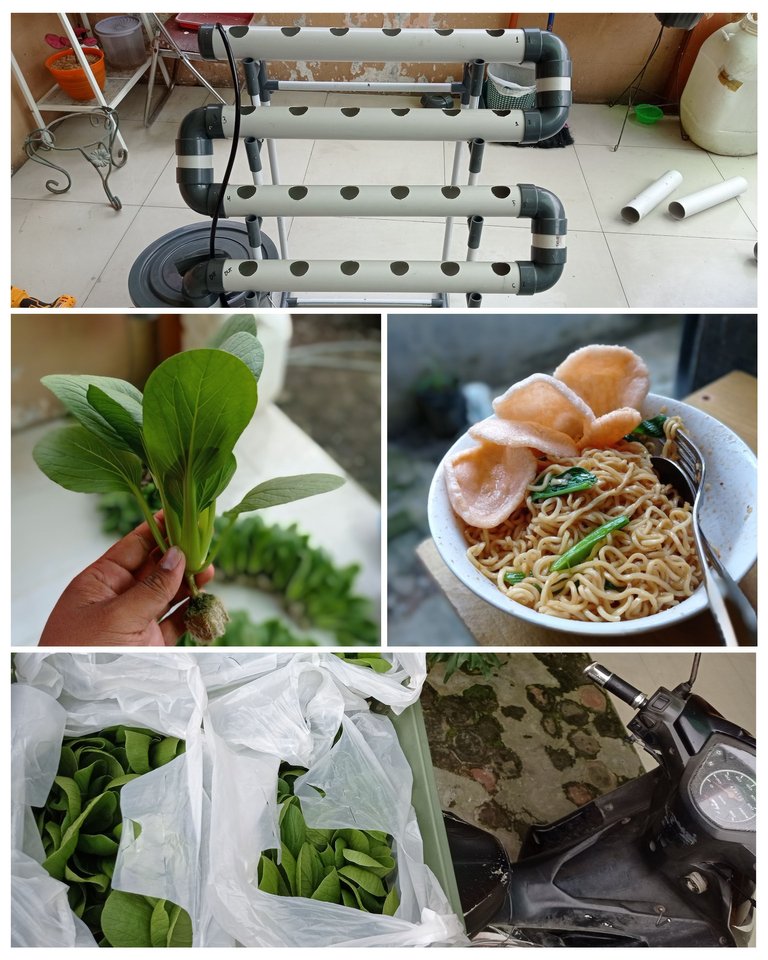
Hello everyone
How are you today ? I hope that all of us are always in good health and happy to live this life. I know, life is not only about fun things but also many problems, debates or tragedies but as humans, we must be able to take lessons from every event that happens in our lives. As the old saying goes, life is about solving one problem and moving on to another.
This time, I want to return to participate in this community. I would like to invite you to use part of your house to grow vegetables with a hydroponic installation. Just imagine, if in your yard which is usually not taken care of or just overgrown with grass. Then, you turn it into a mini vegetable garden that you can use yourself. Or if it is managed properly, the vegetables you harvest can be sold and we will benefit.
Growing vegetables at home has many benefits, such as meeting the needs of personal vegetables or selling them to other people around where we live. However, there is another benefit to growing vegetables in our homes, and it has a sizeable environmental impact. In my opinion, growing and producing our own vegetables in our homes will reduce the emissions of the fuel we use. What ? How come ?
Simply put, if you grow vegetables at home, you will get fresh vegetables that you can consume yourself. Like today, I want to cook instant noodles for my lunch. I chose Indomie Goreng, one of the biggest instant noodle brands in Indonesia and also the world. I added vegetables (pakcoy) to make my instant noodles look healthier.
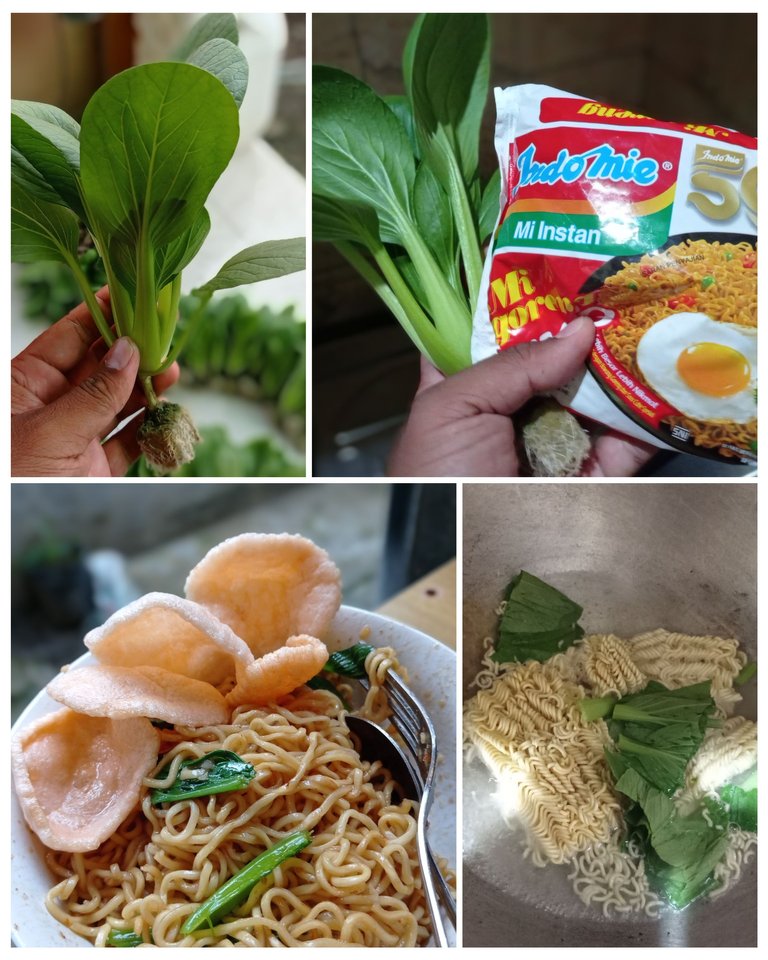
Think friends, if I just take the pakcoy that I grow at home, and cook it right away without having to go to the vegetable shop. I don't need to use a motorbike or car to buy vegetables, and that means no fuel is used. In addition, I also learned a lesson that I can take from this urban farming activity.
On this day, I harvest a lot of vegetables and most of them I sell to the vegetable shop in my city. This means that the vegetables that I grow in my house can help and fill the vegetable needs for the people around the district where I live. In my city, all fresh vegetables are imported from outside the city of Medan City.
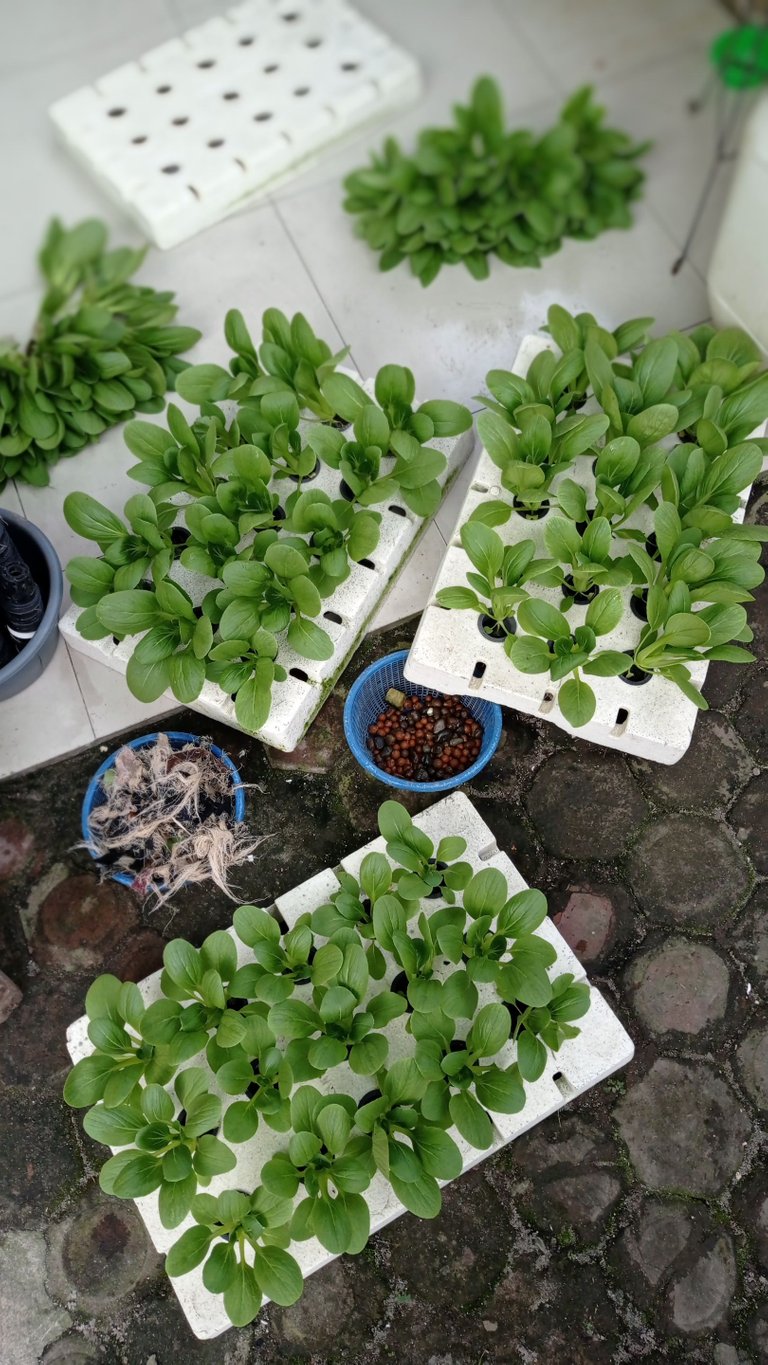
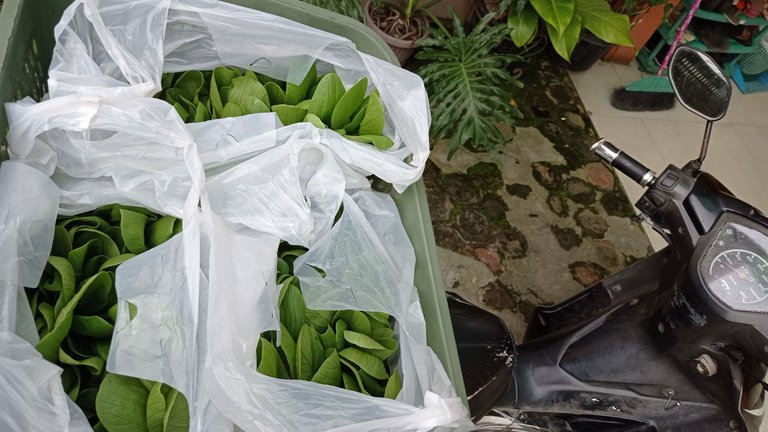
Sending pakcoy to a vegetable shop in my city using a motorbike is certainly less fuel than having to send vegetables by truck from outside the city.
So, if we think about how the logistics used to distribute all these vegetables to markets, vegetable shops, or supermarkets certainly use a lot of fuel. Millions of liters of fuel are used up every day to distribute vegetables, leaving emissions and pollution for us. If everyone can produce their own vegetables, it will minimize the use of fuel and people can get fresher vegetables of course.
Making a Simple Hydroponic Installation
Anyway, if you are also interested in having your own vegetable garden at home, but the land is limited and you don't have land to plant. I offer a solution by means of urban farming using a hydroponic system as I did. I want to share tips and how to make a minimalist hydroponic installation with a simple PVC pipe. If you have unused pipe stock or have time to make it, you can try to imitate an installation like this.
This time, I made a simple hydroponic installation. I used inch PVC pipe as a hydroponic rack and 2 inch PVC pipe for the vegetable growing media. The installation that I will make is very minimalist and suitable for the home page, apartment balcony or anywhere as long as it gets enough sunlight.
Tools and Materials to Make a Simple PVC Pipe Hydroponic Installation:
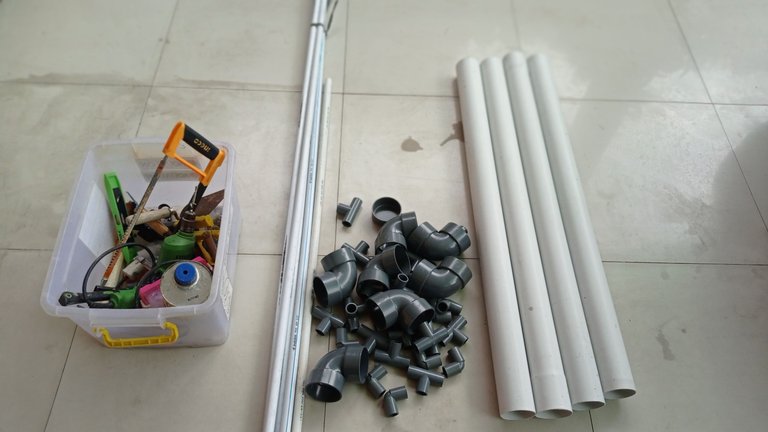
- PVC Pipe Tees size 1/2 inch 16 pcs
- PVC pipe elbow size 1/2 inch 10 pcs
- pipe inch 1 rod
- 2.5 inch pipe
- pipe elbow 2.5 inch 7 pcs
- aquarium pump
- hose
- pipe glue
- saw
- pvc pipe cutter
- electric drill
First, we cut 1/2 inch PVC pipe with the following sizes:
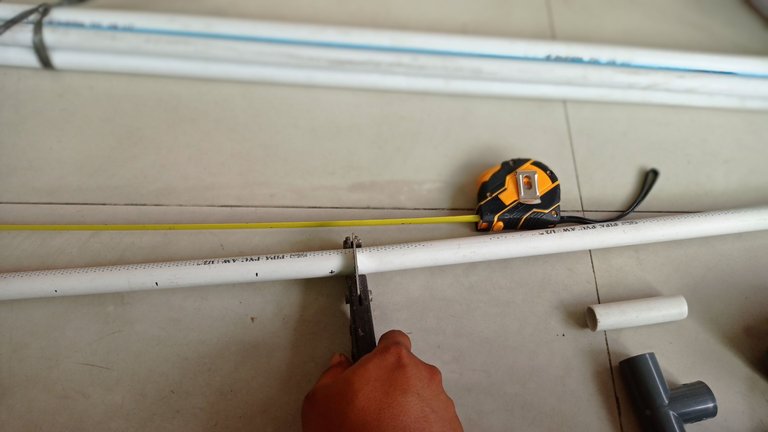
8 cm x 8 : to make shelf supports
12 cm x 6: for shelf support
75 cm x 2: Poles / support for hydroponic frames
38 cm x 2: Pole / support for hydroponic frames
50 cm x 3: pipe to connect the hydroponic installation frame. (Pipe A)
For the 2.5 inch pipe, I cut it to 80 cm x 4 pcs and 10 cm x 3 pcs for pipe joints.
After it was cut, then I made a pipe frame partition like this:
A inch by 12 cm pipe for the 1/2 inch elbow, and a 6 cm length is connected to a 1/2 inch tee.
After that, we will assemble it into a hydroponic framework like this:
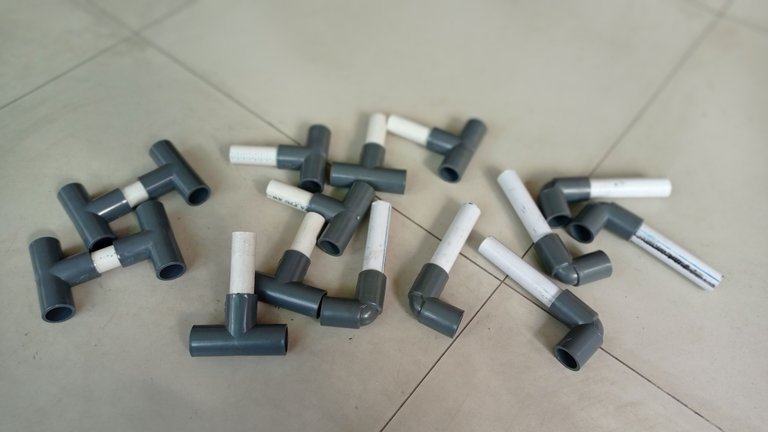
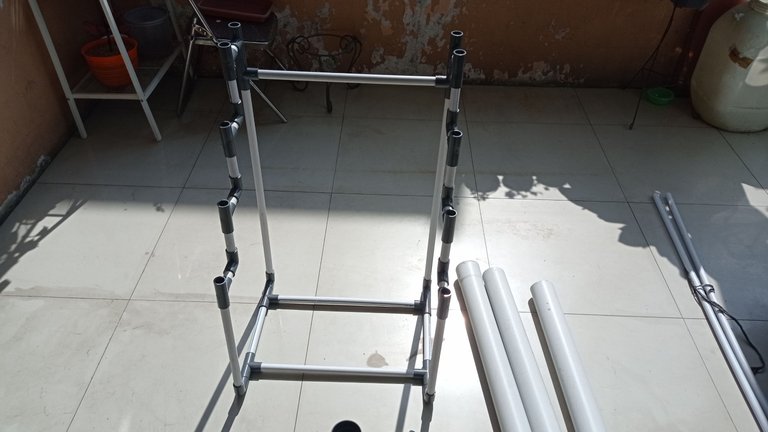
Then, we drill holes in the 2.5 inch PVC pipe using an electric drill with a 44 mm diameter round drill bit. I used a spacing between holes of about 12 cm, so that each pipe rod will have six holes. (Sorry no photos, I'm confused on how to take them).
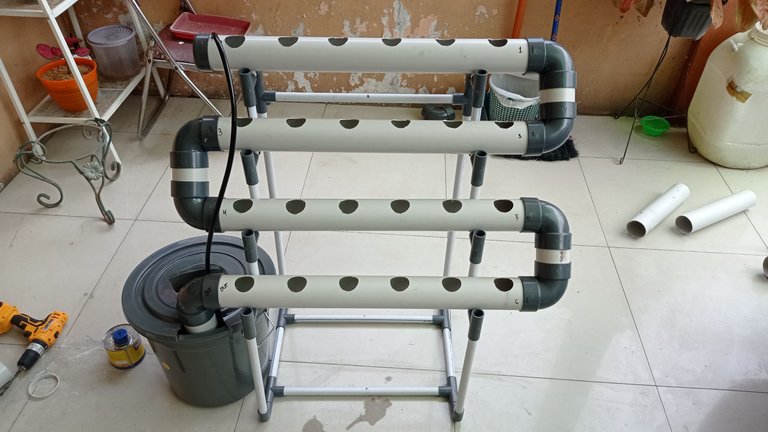
After that, the pipes that have been perforated are placed in the framework of the hydroponic installation and connected between pipes so that each pipe is connected and can be flowed by water. The PVC pipe hydroponic installation uses a water circulation system, meaning that the pump that we place in the water reservoir will drain the water to the top of the pipe, then flow and return to the water tub.
Simple and easy, right? PVC pipe hydroponic installation with a model like this is very easy to condition, and also easy to use. Good luck.

Call me Isdarmady, because I have a full name that is very long, namely Isdarmady Syahputra Ritonga. I am a head of the family who work as Farmers Vegetables Hydroponic and Consultant Hydroponics, sometimes I also sell coffee from various regions in Indonesia.
I have expertise dispensing coffee with a variety of techniques and tools brewing, because I have the desire to make a coffee shop with hydroponics as centerpieces. Help me realize that dream.
Thanks for read, vote, re-blog and support me in Hive. Maybe god will reward the kindness, let’s success together.
Thank you for sharing this post on HIVE!
Your content got selected by our fellow curator semarekha & you received a little thank you upvote from our non-profit curation initiative. Your post will be featured in one of our recurring curation compilations which is aiming to offer you a stage to widen your audience within the DIY scene of Hive.
Next time make sure to post / cross-post your creation within the DIYHub community on HIVE and you will receive a higher upvote!
Stay creative & hive on!
Your content has been voted as a part of Encouragement program. Keep up the good work!
Use Ecency daily to boost your growth on platform!
Support Ecency
Vote for new Proposal
Delegate HP and earn more
That’s lovey, so innovative. Nice! 🌿🌱🌿🌱🌿🌱☕️☕️☕️☕️🤗❤️🤗🌱🌿🌿
See my basil, dill, spinach and tomato
Hehe, so much fun
hello @itsostylish
thank you for stopping by
your vegetable plants are so cool. I've tried several times to plant basil but failed, do you have any tips?
🙏 pray, that’s all we can do. Basil needs lots of sun and warmth to grow. 🤗🌿🌱🤗🌿🌿
Very useful tips, I will definitely try them later. I might start by looking for quality basil seeds first.
https://twitter.com/1475819111271870469/status/1581573604902572033
The rewards earned on this comment will go directly to the people( @ladytitan ) sharing the post on Twitter as long as they are registered with @poshtoken. Sign up at https://hiveposh.com.